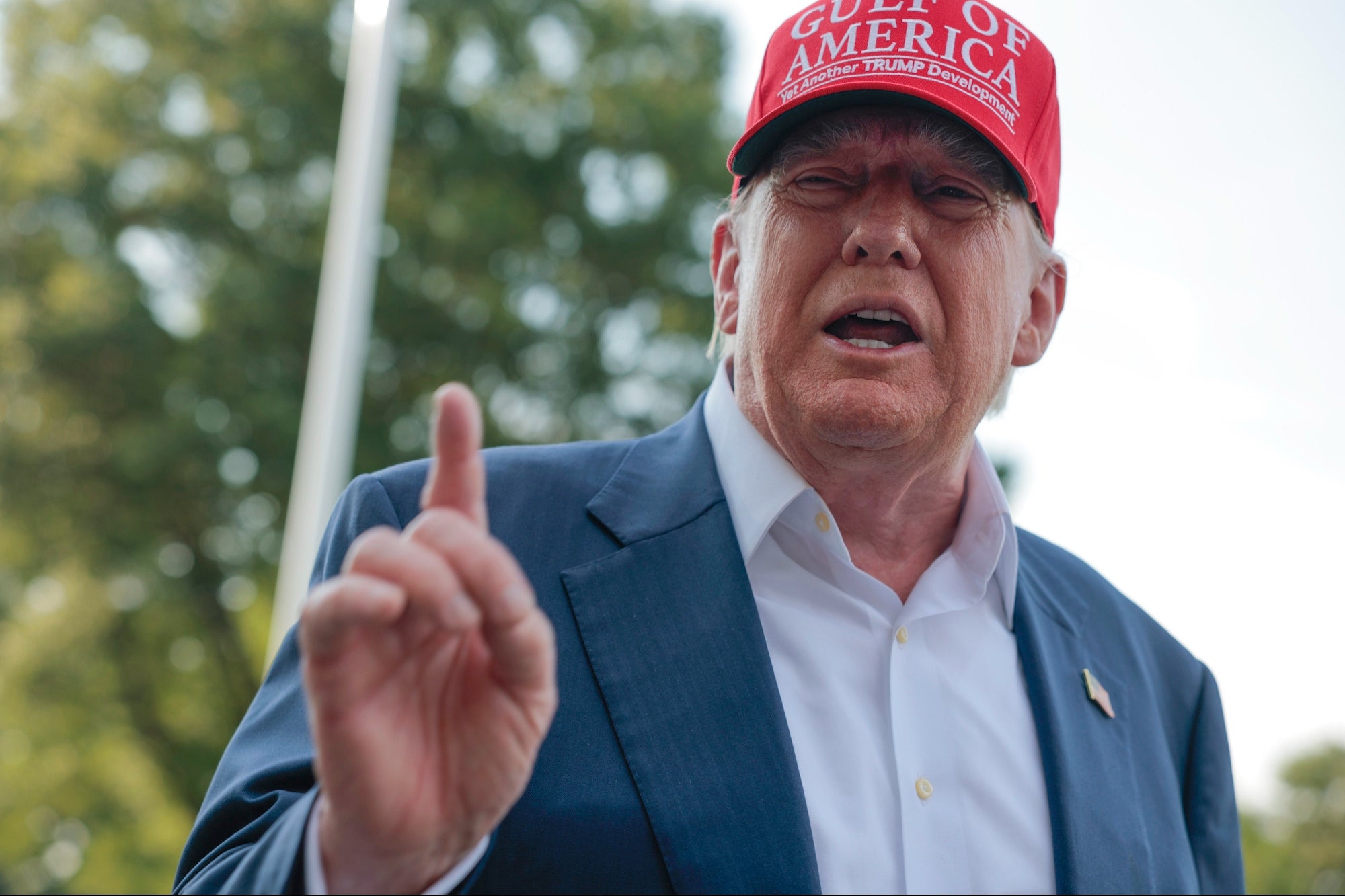President Donald Trump’s “Big, Beautiful Bill” passed the House on Thursday, 218-214. (There’s even a Domino’s Pizza-style tracker on the White House website — “We are preparing your tax cuts…” it reads.)
President Trump is expected to sign the bill into law on July 4. After passing the House, House Speaker Mike Johnson (R-Louisiana) said, “What more appropriate time to pass the big, beautiful bill for America than on Independence Day?”
The 887-page bill includes tax and spending cuts that will affect small businesses.
Related: Big Government Changes Are Coming for Small Businesses — What You Need to Know
On Fox News’ “Mornings With Maria” on Wednesday, CPA and small business owner Gene Marks said the big winners of the bill “are small businesses.”
“I think that’s going to have an enormous impact on the growth of businesses in this country,” Marks said. “There are certain tax provisions in this bill, investing in capital equipment, spending on research and development, [increasing] the exemption for estate taxes, [and] they’ve all been made permanent, which means that small businesses can make long-term decisions about investing in their businesses, selling their businesses, or passing it on to new generations knowing that the laws aren’t going to change.”
On Truth Social, President Trump called it: “One of the most consequential Bills ever.”
Here are some key items affecting businesses big and small:
Corporations
The tax breaks from the 2017 Tax Cuts and Jobs Act will be permanent, which allows businesses to write off the costs of research and development.
When the Ways and Means Committee voted to make the 2017 cuts permanent, they said that the provisions “will provide small businesses, manufacturers, and farmers the certainty and confidence to fuel a second Trump economic boom through new investment and job creation.”
“Families and workers will save money from lower tax rates, a larger Child Tax Credit, and President Trump’s tax priorities for hardworking Americans: tax relief for seniors, no tax on tips, no tax on overtime pay, and no tax on auto loan interest for American-made cars,” the committee wrote on its website in May.
Building and construction
Businesses will be able to deduct the cost of building new manufacturing facilities in full — and at a much faster rate. According to Associated Builders and Contractors (ABC), which represents 23,000 members and “millions” of construction workers, its website says, the legislation includes several tax provisions that will “directly benefit contractors.”
“Tax certainty and pro-growth policies are not abstract policy goals for construction businesses—they are the foundation that allows ABC members to invest, grow, and keep America building,” said Kristen Swearingen, ABC vice president of government affairs.
Franchises
The bill is backed by the International Franchise Association (IFA). President and CEO Matt Haller told Entrepreneur in June that the tax provisions in the bill “will have a hugely positive impact on America’s 830,000 franchise small business owners and their nine million employees.”
Related: Here’s What the ‘One, Big, Beautiful Bill’ Means for the Franchise Industry
“IFA, our member brands and franchise owners have been laser-focused on ensuring permanent tax relief,” Haller said. “IFA thanks President Trump for putting the importance of protecting franchise small business owners front and center, and lawmakers for their work to get this bill across the finish line.”
Eliminates tax on tips
In occupations where workers receive tips (restaurants, bars, beauty services, etc.), earned tips will no longer be taxed as taxable income. There are a few caveats, though: The provision expires in 2028, and the deduction is capped at $25,000.
The exemption only applies to federal income tax, meaning state and local income and payroll taxes would not apply. Also, in the new Senate version of the bill, workers earning $150,000 or more a year ($300,000 for joint filers) are exempt.
No tax on overtime
White House estimates suggest that employees who work overtime hours would save up to $2,000 in taxes yearly with the bill.
“Exempting overtime pay from federal income tax delivers direct, meaningful relief to the hardworking men and women of the construction trades, rewarding long hours on the jobsite,” the Associated Builders and Contractors said in a statement.
However, the AP reports that the bill does not eliminate taxes on Social Security benefits.
Interest deductions
The bill suggests that instead of calculating with EBIT (earnings before interest and taxes), deductions should be calculated using EBITDA (adds depreciation and amortization), which, the White House says, would allow businesses and franchises to deduct billions more in expenses.
State and local taxes (SALT) deductions
The cap on the federal deduction for state and local taxes (SALT) will increase from $10,000 to $40,000 starting in 2025. According to the Tax Foundation, this will mainly benefit high earners.
President Donald Trump’s “Big, Beautiful Bill” passed the House on Thursday, 218-214. (There’s even a Domino’s Pizza-style tracker on the White House website — “We are preparing your tax cuts…” it reads.)
President Trump is expected to sign the bill into law on July 4. After passing the House, House Speaker Mike Johnson (R-Louisiana) said, “What more appropriate time to pass the big, beautiful bill for America than on Independence Day?”
The 887-page bill includes tax and spending cuts that will affect small businesses.
The rest of this article is locked.
Join Entrepreneur+ today for access.








